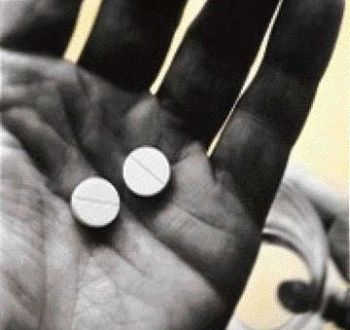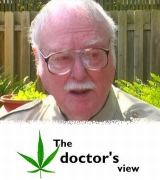
Publisher:
Bonnie King
CONTACT:
Newsroom@Salem-news.com
Advertising:
Adsales@Salem-news.com

~Truth~
~Justice~
~Peace~
TJP
Nov-04-2008 13:47

 TweetFollow @OregonNews
TweetFollow @OregonNews
Placebos: Fake Medicines and Fake Doctors
Dr. Phil Leveque Salem-News.comPhillip Leveque has spent his life as a Combat Infantryman, Physician Pharmacologist and Toxicologist.
 Image: Young Pharmacists' Group (YPG) |
(MOLALLA, Ore.) - I can’t say I was surprised to read in the Oregonian newspaper October 24th 2008 that 62 percent of doctors believe that placebo “treatment” was ethically acceptable. It is really surprising to me that so many doctors admit it – bravado, maybe!
Placebo is Latin for "I Please". Back in the “old days” a placebo was perhaps sugar pills with a bit of quinine, a very bitter substance or strychnine, equally bitter, but an overdose is terribly lethal.
This story exposes a very well kept doctors secret. One that's been working for centuries.
One would presume that doctors know a lot about Pharmacology, the science of drugs and their actions on the body – not so! Doctors have a two term, 6 month, course in Pharmacology. Which is the same for Biochemistry, Anatomy, Physiology, Bacteriology and Pathology. No physician/doctor would consider himself qualified to teach any of these subjects, including Pharmacology, which is the gateway or bridge to really practicing medicine.
Whom do you think they rely on to get their information for prescribing medications? It’s either a “drug detail man” or a pharmacist who looks it up unless he just had the same question minutes before.
This is a really strange system and explains why there are 50 or more medical sub-specialties in which a physician may only have to know about ten drugs. For General Practice Doctors and Internal Medicine Doctors it is much more complex and demanding.
Now getting back to placebos. The doctors of the survey were Internists and Rheumatologists treating arthritis and joint problems. This is a rather confined group. Rheumatism and arthritis are diseases of aging. Nothing really works against aging. Aspirin-like drugs have been used for centuries with reasonable success. Few new replacements have been found to be better. High priced ones give the patient the idea if it costs much more it must be better – bushwah!
The report* says the placebos were 41 percent painkillers (I hope NOT morphine-like drugs but I wouldn’t be surprised), 30 percent vitamins (high doses of some will give a “buzz”), 13 percent antibiotics (very bad choice), 13 percent sedatives (not a bad idea – make them dopey and sleep more), 3 percent saline injections (if it’s concentrated it will hurt and the patient will know he’s getting something), and 2 percent sugar pills (the doctors previously used much more but if it tastes like sugar it’s probably only sugar).
The article says Medical Ethics doctors are all agog about these placebo doctors. If the “Ethical doctors” practiced medicine they might have a mind-changing experience. As it is doctors hope they are correct in treatment at least half of the time. In every class of drugs there are usually 20 alternates and 19 of them may not work for a given patient.
The biggest problem any doctor has is to DO SOMETHING. If he doesn’t, the patient will not come back and he will tell all his friends. If the doctor guesses wrong too often, after he sees the Medical Board he will probably be selling real estate.
Placebos have been historically used and are here to stay – ethicists be damned. Whatever works should be used. There is a psychologic component to every disease.
Hoorah for placebos!
*Link to AP article: Survey: Half of US doctors use placebo treatments
***********************************************************


Got a question or comment for Dr. Leveque?
Email him: Newsroom@Salem-News.com
More information on the history of Dr. Leveque can be found in his book, General Patton's Dogface Soldier of WWII about his own experiences "from a foxhole".
Order the book by mail by following this link: Dogface Soldier
Watch for more streaming video question and answer segments about medical marijuana with Bonnie King and Dr. Phil Leveque.
Click on this link for other articles and video segments about PTSD and medical marijuana on Salem-News.com:
Dr. Leveque INTERVIEWS & ARTICLES
Articles for November 3, 2008 | Articles for November 4, 2008 | Articles for November 5, 2008
Quick Links
DINING
Willamette UniversityGoudy Commons Cafe
Dine on the Queen
Willamette Queen Sternwheeler
MUST SEE SALEM
Oregon Capitol ToursCapitol History Gateway
Willamette River Ride
Willamette Queen Sternwheeler
Historic Home Tours:
Deepwood Museum
The Bush House
Gaiety Hollow Garden
AUCTIONS - APPRAISALS
Auction Masters & AppraisalsCONSTRUCTION SERVICES
Roofing and ContractingSheridan, Ore.
ONLINE SHOPPING
Special Occasion DressesAdvertise with Salem-News
Contact:AdSales@Salem-News.com

googlec507860f6901db00.html



Terms of Service | Privacy Policy
All comments and messages are approved by people and self promotional links or unacceptable comments are denied.
[Return to Top]
©2025 Salem-News.com. All opinions expressed in this article are those of the author and do not necessarily reflect those of Salem-News.com.